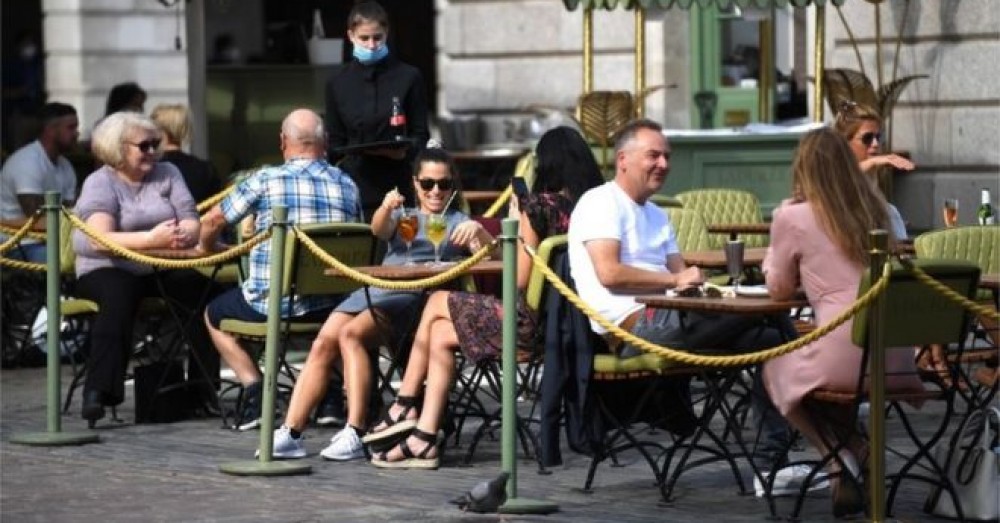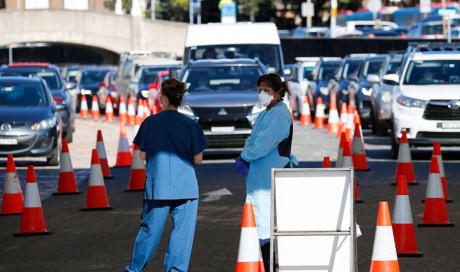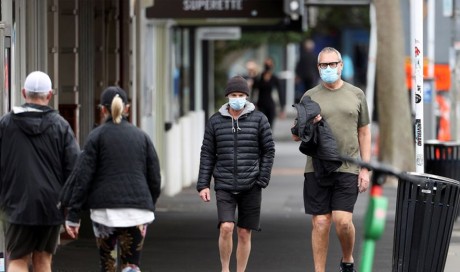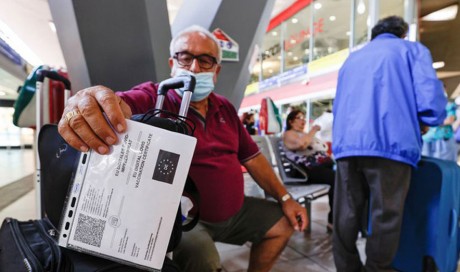Foreign Secretary Dominic Raab has defended the "balanced, targeted and proportionate" new coronavirus measures amid criticism from some scientists.
In England, people are being told to work from home if they can and rules on face coverings have been expanded.
The measures have exposed a split among scientists. Prof John Edmunds, who advises the government, said they did not go "anywhere near far enough".
But other scientists say they hope they are a shift towards a coherent policy.
It comes as Scotland recorded 486 new cases on Wednesday - the highest daily total since the pandemic began.
First Minister Nicola Sturgeon said it was "a real cause for concern", although she added that more people were being tested now than at the peak of the outbreak.
On Tuesday, tighter restrictions were announced in all four UK nations.
Other measures introduced in England include a 22:00 closing time for pubs and restaurants and the number of people allowed at weddings has been halved. The fines for breaking the rules are set to increase to £200 on the first offence.
Hospitality venues will also have to close early in Scotland and Wales - but Scotland has gone further, banning people from visiting other people's homes from Wednesday. Northern Ireland has also already banned households mixing indoors.
Labour leader Sir Keir Starmer has said he supports the new measures, but during Wednesday's Prime Minister's Questions he criticised the government's handling of testing.
He told the House of Commons: "The reality is losing control of testing is a major reason why the prime minister is losing control of this virus."
Mr Johnson defended the NHS Test and Trace system, saying it was allowing the government to to see "in granular detail" where the epidemic was breaking out.
Earlier, Mr Raab said there would always be the "Goldilocks criticism - too much or too little" of the government's strategy, but he added: "We are taking a balanced, targeted position, proportionate approach to prevent ourselves from having to take more drastic action."
He said if people followed all the measures - and no one thinks they are immune - "we will get through this and we will get to Christmas not in a national lockdown".
He added that the effectiveness of the measures would be monitored but there was no fixed time to them. In his address on Tuesday, the prime minister warned they could last up to six months.
In an interview on the Today programme, Prof Edmunds said the comprehensive lockdown in March had brought the R number - which measures how quickly the virus is spreading - down from 2.7 to 0.7.
To stop the epidemic from growing any further, a large range of measures was needed, he said, and cast doubt on the R number being below 1 by Christmas. "I suspect not. There's a chance, of course there's a chance," he said.
"To slow the epidemic down will mean putting the brakes on very hard. I suspect we will see very stringent measures coming in through the UK but it will be too late," he warned.
'Too late'
Prof Peter Openshaw, who is also a member of the government's Scientific Advisory Group for Emergencies (Sage), said a ban on households mixing indoors in England "ought to be instituted sooner rather than later".
Speaking to Radio 5 Live's Emma Barnett, he said: "I think [a ban] may well be coming very soon. I would think if we wait two or three weeks, it will be too late."
The government's chief medical adviser, Prof Chris Whitty, is reported to believe it is inevitable England will to have to follow Scotland's latest move, according to the Times.
Another scientist, Prof Carl Heneghan, from Oxford University, said the measures seemed to show the emphasis of public policy was moving towards personal responsibility, similar to Sweden.
"There's a clearer aim that's happening," he told BBC's Today. "We're starting to understand that we're trying to control the spread of infection as opposed to suppress it."
He added it was important to give these new measures time to work, maintain a clear and consistent public message and not to panic.
Share This Post















